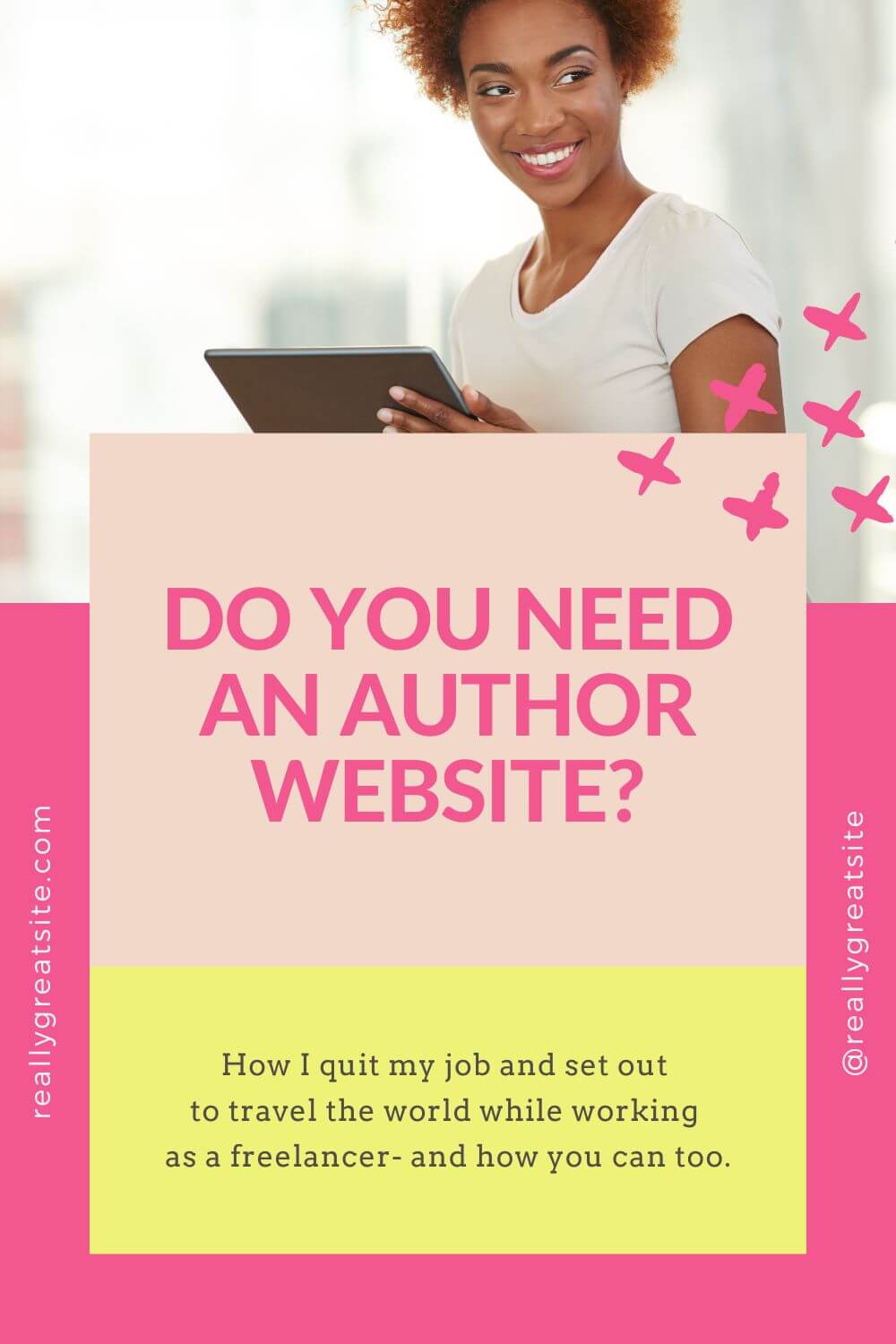As part of my research into the indie publishing world, I’ve discovered that having an author website is a vital part of your author career.
Even if you’re unpublished? The answer is a resounding yes!
As you can imagine, there is a plethora of material out there to guide people in how to best market their books. To date, one of my favourite marketing gurus is Dan Blank.
Why do you need an author website?
It’s important for you to build relationships with your readers. You want them to like you as well as your work so that they feel connected to you and want to buy your new book. If they discover you later down the road, they will want to go back and read your full catalogue.
To do that, you need an author website.
It’s one of the simplest ways of connecting with your readers (or future readers). When a reader truly connects with you, not only do they want to know what other books you’ve written, they want to know about you.
I’m always curious about my favourite writers. I want to know where they live, what jobs they’ve had, their journey to writing and their favourite books.
It helps me form a bond with them and makes me a lot more likely to buy their next book.
Is an author website part of your author platform?

Indeed it is. Your writer ‘platform’ comprises your website, blog, social media accounts, podcast or YouTube videos.
It is also the networking events you regularly attend. These are ways of connecting to people who want to learn more about your novels and your author life.
What do you use your author website for?
Just about anything!
For example, if you’re a woodworker you can show images of yourself busy in the workshop. If you’re an artist, you may want to share images of your work in progress and the inspiration behind the piece (as my good friend Jody Little does).
Perhaps you import clothing or shoes and want to showcase those. Followers are often keen to see how the business side works, as well as seeing the finished product. A glass designer I know regularly posts about her latest projects.
She shows her followers the drawings she uses as the basis of her designs, photographs of her at work and, of course, the finished result. She uses her platform to great effect.
Remember, you want to give people a sense of shared understanding. It’s the story behind the experiences that interests readers, not just factual news articles. Story telling not only builds your online platform, it develops your brand.
Why an author website rather than social media?

The reason your website is so vital to your business is that it’s yours. You own it.
You can build a huge following on Facebook, but if the algorithm changes, you can lose your whole following in one fell swoop.
You own your website, nobody can take that away from you. It’s your home base and everything you do comes out of there.
It’s where you tell followers about yourself and showcase your books.
Should you choose to, it’s where you host your blog, post your videos and embed your podcasts.
From there, you can branch out into the sites you don’t control: Twitter, Pinterest, Instagram, Facebook, Linked In, etc.
Ultimately, all roads lead to your website.
When do you build your author website?
Blank recommends you build your website as soon as possible, before you’ve even published your first book.
The reason is you want to be ‘findable’ so that, when you market your book, people have somewhere to find out more about you and, if they like what they see, buy your book.
What do you share on your author website?
The purpose of your site is to let people connect with you, learn about your books and stories.
In addition to a simple bio and photograph, your author website can be a way for people to join your mailing list.
Let prospective subscribers know what they can expect from you if they sign up. As a thank you, you can send them a short story or novella. Perhaps something related to the series you’re writing, like a map of the location if you’re writing fantasy or, if you’re writing a crime novel, a document about a suspect’s background.
It’s all about connecting with your reader and making them feel valued.
Don’t feel you have to put on a front or be ‘professional’. Rather, be yourself and share things that mean something to you. For example, if you write cosies and collect teapots, let readers know that.
If you’re a crime writer and love true crime documentaries, share that with your audience.
If you’re a sci-fi writer, share your influences and how you come up with your ideas. Maybe you’re a keen traveller and it’s your trips that spark an idea.
When building relationships, Dan Blank advises you be as authentic as you can, and I agree.
Think of your reader as a friend. You’re dropping them a line and letting them know what you’re up to and how your latest novel is coming along.
Teach them something about writing, tell them a funny anecdote, share an experience, relay what you learnt during your book research.
As mentioned previously, readers love to see what goes on behind the scenes – me included!
I want to know how Val McDermid plans out her books, how Lisa Jewell writes so prolifically, and how Kate Atkinson comes up with her time travel story ideas.
Here are a few things to consider as you build your author website.
- Establish your online personality
Choose the parts of your personality that you want to showcase to people. For example, perhaps you have a sarcastic scene of humour. Don’t hide that! That authenticity will resonate with equally sarcastic, funny and nerdy people, who will follow you.
- It’s not about you.
At the same time as showcasing you and your talent, it’s also about your readers. If you get a positive email or comment from someone, give them a shout out on your next blog posts. They will love being publicly acknowledged and feel appreciated.
- You will screw up
Nothing is ever perfect the first time around, and that’s okay!
When you first start writing, your work will not be your best. It takes time to learn this new way of writing. Remember that ‘copy’ is very different from writing fiction. Don’t be surprised if you find it difficult and need a bit of time to find your voice. You’ll get there, give yourself some grace.
How do you start designing your own author website?
I’m not going to reinvent the wheel here. I’m going to send you to the person who taught me, in two half-hour tutorials, how to create my own basic website.
Joanna Penn, who has been marketing her books for over a decade now, kindly put out these easy to follow videos on how to create your own author website.
Final Thoughts: Take your time
Building a following takes time. It’s a slow process that is done by taking one step at a time. This leads me back to one of my favourite business books, The Slight Edge by Jeff Olson. His mantra is; it’s easy to do something, and it’s easy not to. It’s been a game changer in my life.
By just doing one small thing a day, you can achieve more than you ever thought possible. It’s like writing a book; you take it one word at a time.



